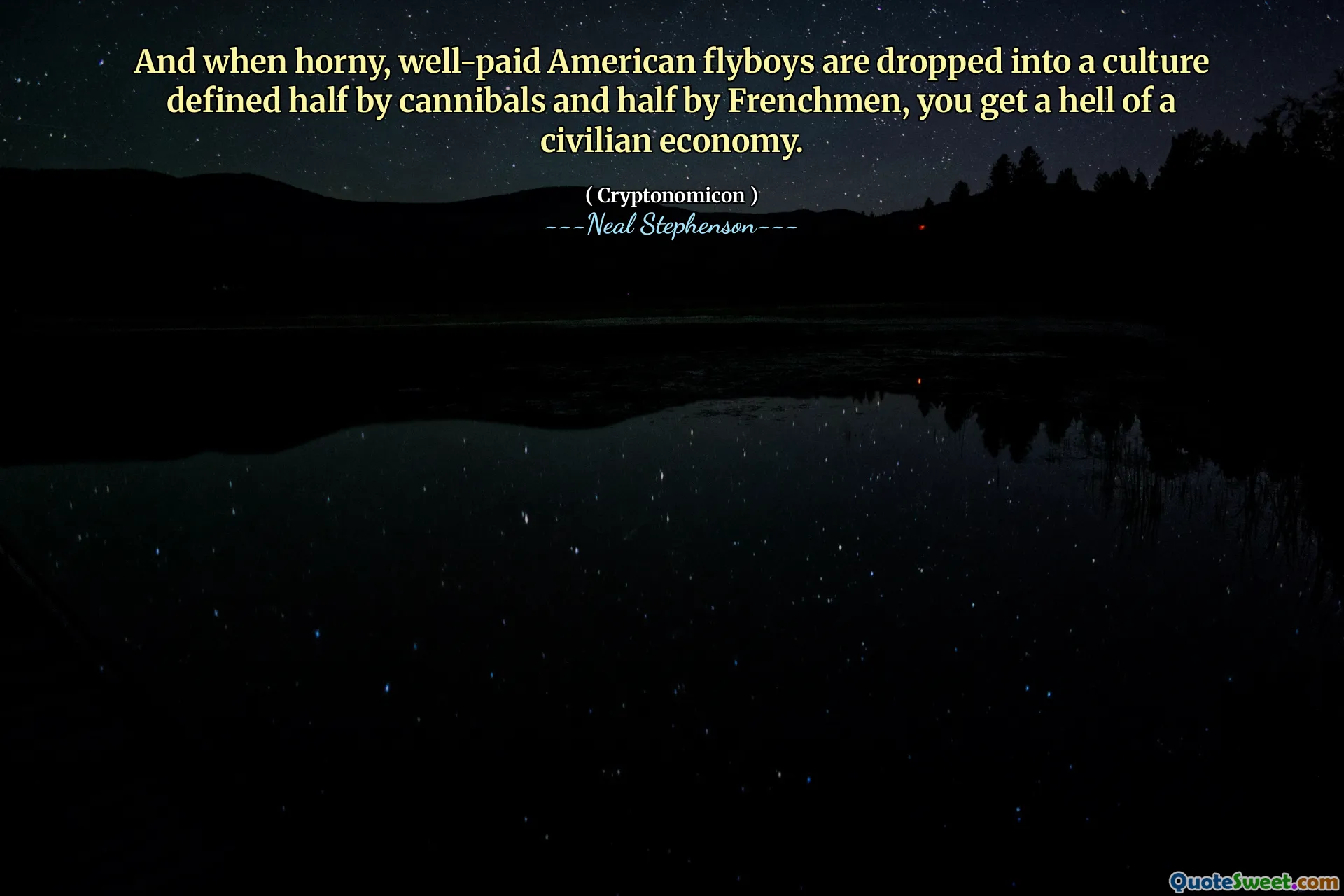
And when horny, well-paid American flyboys are dropped into a culture defined half by cannibals and half by Frenchmen, you get a hell of a civilian economy.
This quote from Neal Stephenson's Cryptonomicon captures the clash and fusion of cultural identities and economic dynamics wrought by military presence in foreign lands. It highlights a vivid, somewhat irreverent portrayal of American soldiers, humorously dubbed "horny, well-paid flyboys," introducing them into a uniquely complex socio-cultural landscape divided between starkly different identities described as "defined half by cannibals and half by Frenchmen."
At its core, the quote underscores how such an intersection can spur a vibrant civilian economy, suggesting that the convergence of diverse, seemingly incongruous cultures with American military influence creates a fertile ground for economic activity. There's an implicit commentary on the impact of globalization and military occupation — often disruptive — yet fostering a bustling economy through new demands, interactions, and potentials.
Thinking deeper, it exposes the layered irony and sometimes unsavory truths behind the myths of culture and commerce in warzones or occupied regions. While the reference to "cannibals" may be metaphorical or provocative, it points to the exoticizing and sometimes dehumanizing lenses through which cultures are viewed in conflict narratives. Meanwhile, French cultural influence might signify colonial or historical legacies impacting identity and social structures.
In summary, this quote distills the complex interplay between culture, military force, and economics, revealing how conflict situations, despite their turmoil, generate unforeseen economic landscapes accented by deeply human contradictions. It prompts reflection on the ethics, consequences, and economics arising from such intercultural contacts.







